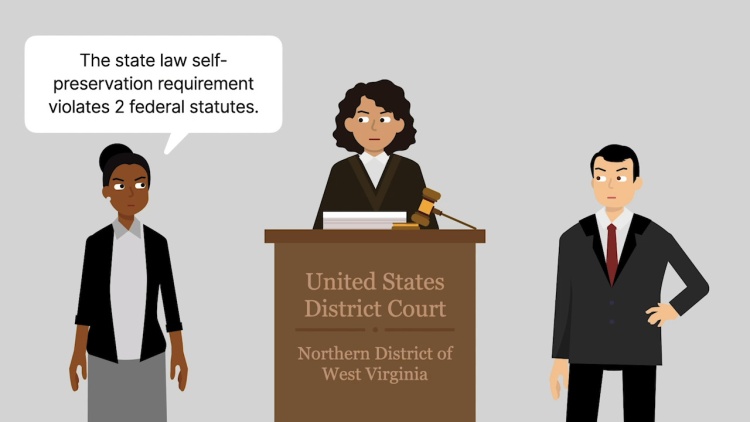Buckhannon Board and Care Home, Inc. v. West Virginia Department of Health and Human Resources
United States Supreme Court
532 U.S. 598 (2001)
- Written by Susie Cowen, JD
Facts
The West Virginia Department of Health and Human Resources (West Virginia) (plaintiff) ordered that the assisted-living facility of the Buckhannon Board and Care Home (Buckhannon) (defendant) be closed after it failed an inspection by the fire marshal’s office for failing to meet West Virginia’s “self-preservation” requirement. This required that all residents be capable of moving themselves from situations involving imminent danger, such as fire. Buckhannon sued, seeking declaratory and injunctive relief that the self-preservation requirement violated the Fair Housing Amendments Act of 1988 (FHAA) and the Americans with Disabilities Act of 1990 (ADA). West Virginia agreed to stay enforcement of the order pending the resolution of the litigation. However, during the course of the litigation, the state legislature eliminated the self-preservation requirement. West Virginia moved to dismiss the case as moot, and the court granted the motion. Buckhannon then requested attorney’s fees, alleging it was the prevailing party under the FHAA and the ADA and that, under the catalyst theory, a plaintiff is a prevailing party if it achieves the desired result because the lawsuit brought about a voluntary change in the defendant’s conduct. The district court denied the motion, noting that the United States Court of Appeals for the Fourth Circuit had previously rejected the catalyst theory.
Rule of Law
Issue
Holding and Reasoning (Rehnquist, C.J.)
Concurrence (Scalia, J.)
Dissent (Ginsburg, J.)
What to do next…
Here's why 905,000 law students have relied on our case briefs:
- Written by law professors and practitioners, not other law students. 47,100 briefs, keyed to 995 casebooks. Top-notch customer support.
- The right amount of information, includes the facts, issues, rule of law, holding and reasoning, and any concurrences and dissents.
- Access in your classes, works on your mobile and tablet. Massive library of related video lessons and high quality multiple-choice questions.
- Easy to use, uniform format for every case brief. Written in plain English, not in legalese. Our briefs summarize and simplify; they don’t just repeat the court’s language.





